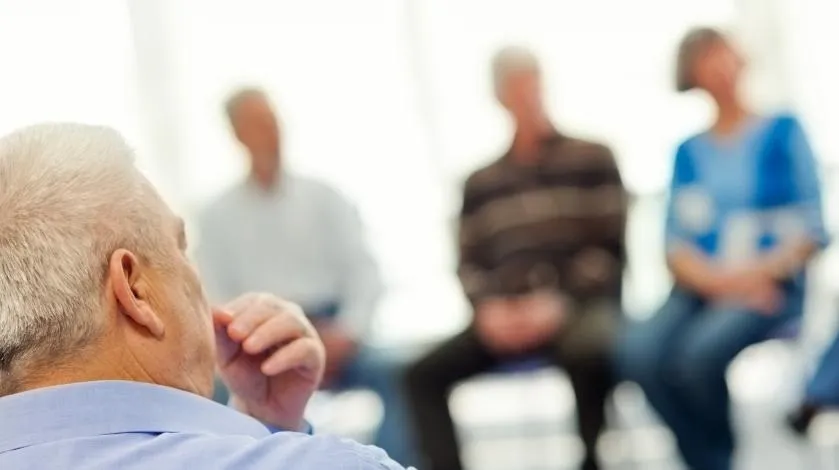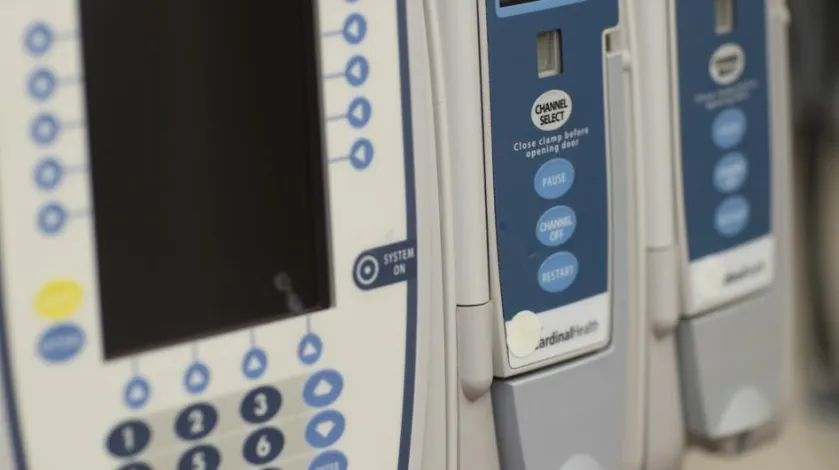Chemotherapy Orientation Class Back in Session
After a three-year, pandemic-related hiatus, the Chemotherapy Orientation Program at the Dana-Farber/Brigham Cancer Center at South Shore Health is back. Classes begin again Wednesday, March 8.
"It’s so important for our community of patients,” said Jennifer Croes, Executive director of the Cancer Center. “Holding the class in person brings us back to a new level of normal, post COVID.”
Developed as part of an accreditation project, the orientation class has been a meaningful experience for patients and staff, which we want to continue, Croes said.
“We’ve had wonderful participant feedback on the program,” Croes said. “Patients report feeling more informed, and relieved to have their questions answered ahead of treatment.”
Launched in 2017 by a group of oncology nurses, the groundbreaking cancer treatment education program for patients was the first of its kind in Massachusetts. The aim of the class is to educate and inform patients about how to plan for and what to expect ahead of chemotherapy or immunotherapy treatment.
Nurse manager Carole DeAngelis was part of the development team that started the program six years ago and said she's excited to be bringing it back. She's seen firsthand how the orientation helps reduce anxiety for patients beginning cancer treatment.
"It's made the patient experience so much better," DeAngelis said. "They're better prepared, less anxious and ready when they arrive for their first treatment."
A cancer diagnosis can be overwhelming and when a provider says the next step is chemotherapy or immunotherapy, patients may have trouble taking it all in, Croes said. Chemotherapy orientation is an opportunity to answer patients’ questions, give them some breathing room and come to a place where they have the support of others who are also going through this, she said.
During the 75-minute orientation, patients learn about the way chemotherapy and immunotherapy works to fight cancer in the body, how those treatments are administered, how long treatment lasts, what side effects they could experience and how to manage them.
The class also familiarizes patients with the some of the terminology they will hear during treatment, so they better understand the process, DeAngelis said.
"The more we can educate patients before treatment, the more we can set them up for success."
“When new cancer patients have the chance to learn more about what to expect during their treatment, we see that as progress toward removing a fear of the unknown," Croes said. "Education is empowering for patients.”
And it benefits both patients and clinicians, DeAngelis said. "When the patient is prepared it decreases everyone's anxiety. it's a win-win."
Patients are encouraged to bring a support person with them to chemotherapy orientation and to their treatments. “It’s good to have two sets of ears,” said Croes, noting that a support person is often also an advocate for the patient.
During the class, patients are encouraged to ask questions and offer feedback in a survey before and after orientation, which is used to further develop the “curriculum,” Croes said.
“We want people to be engaged, interactive and let us know how we did and how we can modify the program to meet patient needs,” she said. “It’s a constantly evolving class.”
It’s also an important part of the Cancer Center’s holistic approach in providing care and addressing all patient needs, Croes added.
Jenna Domenici, RN and Lyndsay Caufield, NP will lead the chemotherapy orientation, DeAngelis said, but other Cancer Center team members also sit in on the sessions, including dieticians, social workers and resource support staff that can connect patients to any services they may need during treatment.
They also become familiar faces to patients when they arrive for their first day of treatment, making the experience less stressful.





